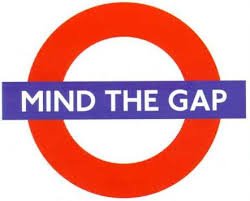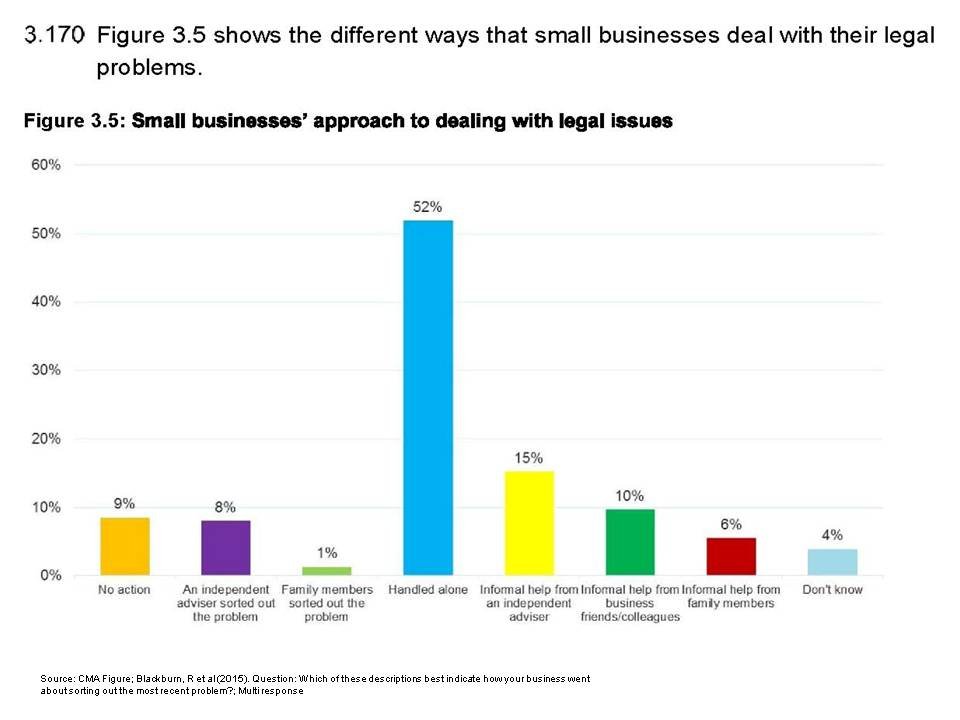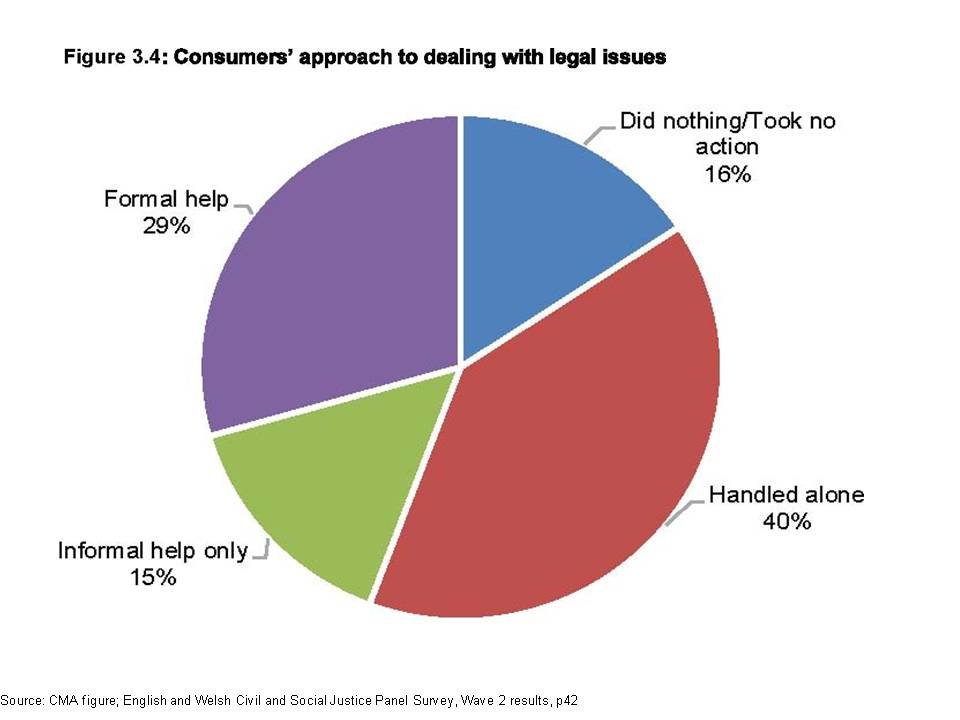Never Mind the Gap- try plugging it!


Love it or loath it, the law and its frequently over-enthusiastic first cousin, red tape, affect us all in some way, each and every day.
Whether in our personal or business capacities, there is just so much that we can do, and can’t do, that is controlled by legislation and regulation.
But does everyone, with ease and confidence, get ready, accurate and easy access to legal help as and when they need it?
Answer: No, not really.
And here are the stats from the Competition & Markets Authority’s (CMA) report on the legal services market in December 2016: Less than 30% of consumers get formal legal advice for their legal problems, and only 8% of small businesses get legal advice on legal problems. Other reports make similar points.
 |  |
This leaves a massive unmet legal service gap in this country.
The main reasons for not getting legal help are frequently cited as the cost of legal services, along with perceptions over complexity and the associated time commitments, the risk of escalation and the difficulty in identifying the right lawyer.
Let’s be clear, the law is not the sole, or even the dominant, preserve of parliamentarians, lawyers, the judicial system, governments or of regulators, yet it applies to all of us living and working in this country and it ought to be accessible.
So long as anyone does not feel they have a reasonable way of finding out where he or she stands legally, the scene is set for potential miscalculation, missed opportunity, mistakes and, worst of all, actual legal liability.
The legal access gap needs to be plugged.
Attending the recent MemberWise Digital Excellence Conference, I was struck by how many times I heard talk (both from the platform and in conversation) about the ‘membership value proposition’, which I believe is short for giving members more tangible benefits and support, all aimed at keeping them happy, committed and thinking positively towards their Association, so that they stay a member.
In the last year, we have surveyed a broad cross-section of membership trade, business and professional Associations to find out the level of legal help offered to memberships across the country. What we discovered is that the CMA’s legal access findings are heavily reflected amongst Associations.
We’ll be publishing more details soon, but what we can say now is that only 20% of the Associations that we researched provide members with any sort of legal support via their websites. Leaving a whopping 80% that give members no legal support at all.
This is an addressable issue. While not advocating that a legal help function is going to be relevant for all Associations, given their ‘trusted resource’ status, offering a digital legal interface would do three, highly beneficial, things:
- Give members a reason to use their Association’s website more frequently.
- Provide an additional valuable resource for individual members, their businesses & families.
- Bring Associations to the forefront of tackling the serious national unmet legal needs stats referenced above.
Our clear objective: to give members a curated, reliable, easy-to-use legal leg-up and, most important, to help plug that gap.




